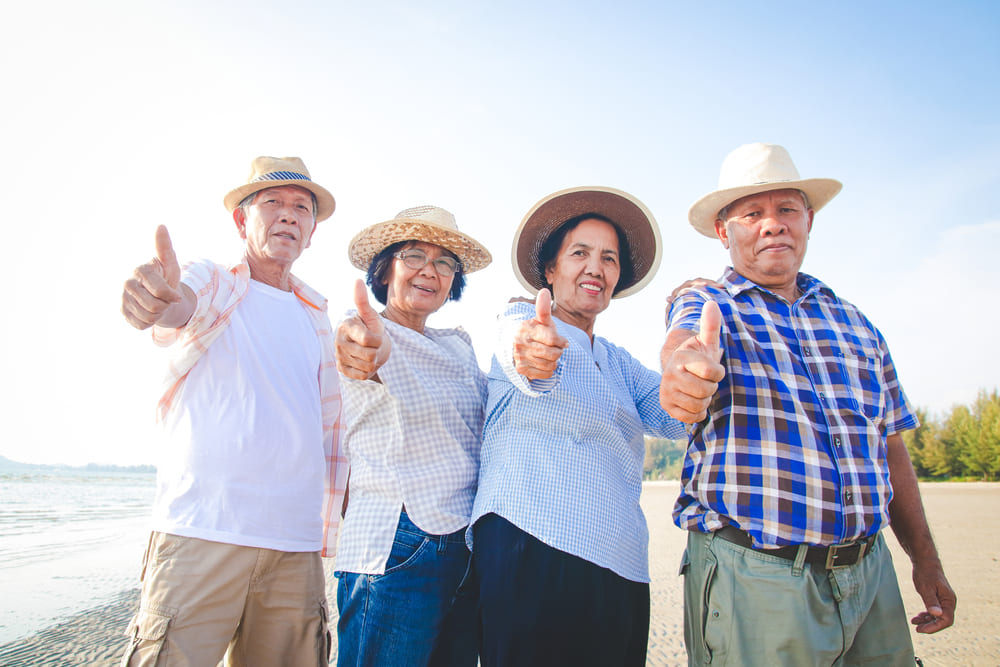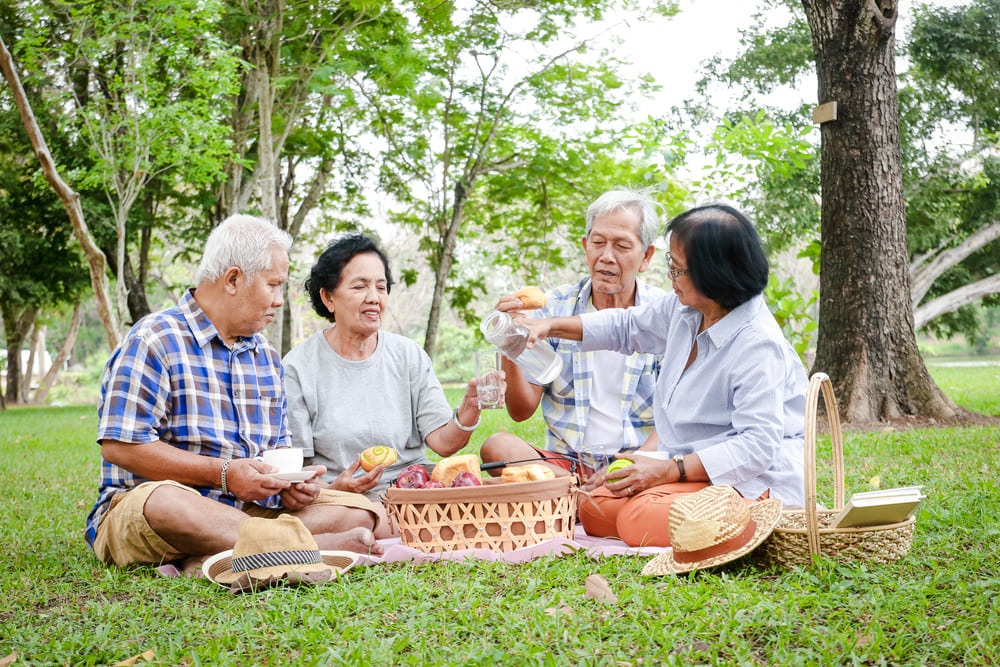Asst. Prof. Dr. Theeraphong Boonrugsa
“Communication” is the starting point for constructing learning, creating a city and establishing the well-being of its citizens.
Once a human baby takes its first breath in the world, it begins to use a communication process to learn about the things around it by dimly perceiving through the senses of seeing, hearing, smelling, tasting, and touching. Afterwards, human beings learn more and more: for example, about eating and its details: colours, smells, taste, sound, softness and hardness of food, happiness and enjoyment, even diarrhea and stomach aches. All of these details are “media” that help us recognize the special characteristics of any particular item. That acquired learning, about anything, is consequently recorded in each person’s memory. That is, the accumulated experience we generally employ as a framework for judging, interpreting, and evaluating the values of anything, for example, any food we choose to eat next time. Therefore, it can be said that human beings need to rely on their learning acquired from a communication process within themselves in order to survive and become happy. In addition, human beings also learn that living with others can bring a more secure life, better tools for making a living, and a greater variety of food, certainly compared to living all alone. Indeed, such acquisition arises from the processes of knowledge management, knowledge sharing, and the transfer among human beings of the knowledge and experience garnered, all of which are more varied than when we think and live alone. Human beings thus learn to live together, resulting in the creation of houses, communities and cities. The learning process of coexistence allows human beings to design the systems of communication among people, through, for example, language, culture, laws, and political and economic systems, to employ as rules for living together. There should be no doubt that the developments of the world have emerged from the communication process of people within society and among societies. Without any communication process, it means that human beings do not gain perception and learning, and, worst of all, they cannot encourage creativity, thus never learning to a create society and improve their own well-being. Therefore, it is evident that “communication” is exactly the starting point for creating knowledge, building cities and improving the well-being of citizens.

“Media and Information Literate Cities”: Guidelines for the Development of Smart Cities for Sustainable Peace
Thailand has tried to introduce the concept of creating “smart cities” that emphasize the use of modern technology and information systems to manage the environment, transportation, energy, livelihoods, citizens, economy, and public administration. This can be considered the use of communication in administration and development of the quality of life of its citizens. However, the sudden rush to promote the creation of smart cities while citizens still lack media literacy skills likely has profound consequences. Considerable misunderstandings may arise, as seen in the cases of certain groups of citizens falling prey to falsely advertised information of inferior quality products, or being threatened to transfer money or reveal personal information, as well as the cases of fake news spread to cause panic and disharmony in society.
In 2018, the United Nations Educational, Scientific and Cultural Organization (UNESCO) launched the initiative of “Media and Information Literate Cities” (MIL Cities) emphasizing the empowerment of more citizens with MIL competencies based on the smart cities. The main objective is to boost immunity from ignorance for citizens so that they are literate in the process of media perception and moral use, and not easy prey for false advertising and fake information, nor interrupted by desires, emotions and instincts. Therefore, literate media citizens can have well-informed opinions and can be knowledgeable about how to use media to benefit the welling-being both of themselves and of others, without causing damage to themselves and the public.

“Politicians who are true friends” are an important factor in creating media and information literate cities.
In Buddhism, having Sammàdiññhi, the “right views,” or the correct opinions, is considered the starting point for living a correct and good life according to the principles of the Noble Eightfold Path. That is, if one understands things as they are without bias, one will not be selfish and think of hurting others. Instead, one becomes determined to consciously try to help others with a stable mind that cannot be shaken. That will yield helpful livelihood, behavior and communication without harming others.
To develop the “right view,” one needs to also include Paratoghosa, or “good inducement by others” which conveys information and knowledge that helps one to have the correct opinions or understanding of things. Naturally, one often receives this good Paratoghosa from Kalyàõamitta (media) which provides one with the good information and from Yonisomanasikàra, which comprises the learning process of thinking, analytical reflection, proper and wise consideration with reason, and thorough attention to the received information.
In a democratic system the “politicians” are the people who intend to present themselves as representatives of the citizens in the administration of the city for the benefit, happiness and safety of the people. In so doing, if the cities have politicians with “true friendship towards the citizens” as representatives, these politicians can indeed become an important force for enhancing media and information literate citizens with Sammàdiññhi, or the “right views.” In this article, the author would like to present the characteristics of politicians who are “true friends” so that you yourself can use these principles as tools to help you make your representatives “literate”:
Piyo (Lovable) is a lovely person, easy to hang out with, and makes you feel all right to approach her/him for advice. Any politician with these characteristics is thus kind, good-natured, friendly, modest and approachable. When having conversations with people, she/he speaks nicely with kindness without inciting, threatening or becoming furious. Therefore, Piyo has the properties of “media that are easy to access.”
Garu (Respectable) is a respectful person. She/he has good behaviour with a warm personality and is dependable. Any politician with these qualities is honest both face-to-face and behind our back, consistently moral both in work and life, sacrificial, sincerely helpful, impervious to temptation, grateful, loyal in keeping promises, grateful to benefactors, a role model for others, never taking advantage and persecuting anyone, or getting above herself or himself and forgetting her or his origins.
This is evident in the properties of “inspirational media.”
Bhàvanãyo (Adorable) is an admirable and knowledgeable person, regularly capable of self-improvement. Politicians with those characteristics show the ability to guide society by presenting policies and beneficial laws aiming to solve problems and develop society, manage capital and resources for the benefit and happiness of citizens in all sectors, catch up on their own knowledge to be modern and reasonable, make decisions with accurate and up-to-date information, promote knowledge management of society, and employ modern knowledge to develop cities.
On the whole, those properties can be categorised as “the media that provides accurate and up-to-date knowledge.”
Vattà ca (Being a counsellor) is a person capable of communicating to others to gain understanding, give advice, counsel and warn others in a timely manner. A politician who has this characteristic is just such a good communicator, successful in gaining understanding to create unity and harmony amongst all people in society, giving encouragement and constantly providing advice beneficial to society, as well as having the courage to suggest fair and equitable policies and laws and to protest policies and laws that are unfair and that promote inequality in order to preserve the public’s benefit without considering the negative impact on herself or himself.
All in all, she/he has the properties of “media for learning and surveillance.”
Vacanakkhamo (Being a patient listener) is a person who is patient in listening to other people’s problems, patient in asking questions and listening to suggestions from others. A politician who has these characteristics is a person who is open-minded and listens to the problems and sufferings of all groups of citizens and accepts the good opinions of others, even from competitors, learns new things, adapts herself or himself to a variety of people, understands the problems of citizens of all genders, ages and beliefs, applies new technology or innovations to develop cities and enhance the well-being of citizens appropriately and safely.
Therefore, such politicians can use the properties of “media that listen and create participation.”
Gambhãra¤ca katham kattà (Able to deliver deep discourse or to treat profound subjects) is a person able to explain complex matters to others easily. A politician with this characteristic is a communicator for change. That is, she/he can convey complex matters to stimulate and guide others so that, through discussion and explanation, they profoundly understand matters in order to ensure fairness and knowledgeability of citizens about the media.
So, Gambhãranca katham kattà has the properties of “media that create the power of change.”
No caññhàne niyojaye (Never exhorting groundlessly) is a person who does not persuade or guide others down a dishonourable path. A politician of this kind includes a person who opposes all forms of corrupt policies and administration and policies or laws that benefit certain groups of citizens based on unfairness, and do not use rhetoric to persuade citizens to believe in wrong things.
That is why No caññhàne niyojaye has the quality of “not being fake news media.”
As for the elderly who have been following our ICEM E-Bulletin for quite a while, you understand very well about the media awareness campaign, ‘Stop, Think, Ask, Act.’ Exactly, yes! That is our initiative to create “the elderly with media and information literacy.”

The coming election of Thailand has been considered a testament to the practical application of the campaign. You, as the wise elders of society, can show your Kalyàõamitta (true friendship) by giving advice or sharing articles in various volumes to promote politicians who are true friends in order to create “media and information literate cities” for us all.
TRANSLATOR’S PREFACE
“Once a human baby takes the first breath in the world, it begins to use a communication process to learn about things around by dimly perceiving through the senses of seeing, hearing, smelling, tasting, and touching.”
This is the very first sentence of the article “True Friendship”: A Qualification of Politicians to Create Media and Information Literate Cities that disguises itself as a plain and simple. At the end of the day, this can make a careless translator smiles in vain. This article contains four parts, that is, communication, media, smart cities and true friends. Once again, the same careless translator might have a big smile that the part of true friends is a piece of cake. On the contrary, it is most challenging due to Dhamma terminology and description of human characteristics.
Moreover, when it comes to human beings, nothing is easy. In many cases, the translator needs to rearrange order of texts, or details of characteristics in order to make the translation becomes natural and easy to read and comprehend. It is about both of word managing and stylistics.
For example, in the original version, the characteristics of respectable friends in the English version are rearranged as shown below:
| Thai | English |
| ครุ เป็นคนน่าเคารพ มีความประพฤติดี คบแล้วอุ่นใจ เป็นที่พึ่งได้ นักการเมืองที่มีคุณลักษณะตามข้อนี้ จึงเป็นผู้ที่มีความซื่อสัตย์สุจริตทั้ง ต่อหน้าและลับหลัง มีคุณธรรมในการบริหารงานและการดำเนินชีวิตมา โดยตลอด เสียสละ ช่วยเหลืออย่างจริงใจ ไม่หวั่นไหวต่อกิเลสหรือสิ่งล่อลวง 1ไม่เอาเปรียบ 2ไม่ข่มเหงใคร 3รักษาคำสัญญา 4ไม่ลืมตัว 5กตัญญูกตเวที ทำตัว 6เป็นแบบอย่างที่ดีต่อผู้อื่น จึงมีคุณสมบัติเป็น “สื่อที่สร้างแรงบันดาลใจ” | Garu (Respectable) is a respectful person. She/he has a good behaviour with a warm personality and is dependable. Any politicians with these qualities are honest both in front of and behind our back, consistently moral both in work and life, sacrificial, sincerely helpful, susceptible to temptations, 1grateful, loyal by 3keeping promises, 5grateful to the benefactors, 6acting as a role model for others, 2without taking advantage and persecuting anyone and 4getting good and forgetting origins. |
I do owe a special debt of gratitude to, Assoc. Prof. Dr. Nuntiya Doungphummes, Chair of Intelligent Center for Elderly Media Literacy, Mahidol University whose great trust and support have been invaluable.
With warm feelings I would like to express my extreme gratitude to Asst. Prof. Dr. Theeraphong Boonrugsa Program Chairperson in Language and Intercultural Communication, Research Institute for Languages and Cultures of Asia (RILCA), Mahidol University, and his profound article, True Friendship”: A Qualification of Politicians to Create Media and Information Literate Cities for allowing me to share this preface amongst appropriate practices and experience like Kalyàõamitta (true friends) and other dimensions of translation.
Krittaya Akanisdha
June 2024
References
- Somdet Phra Buddhaghosacharya (P.A. Payutto). (2021). Dictionary of Buddhism. (43rd ed.).
- UNESCO. (2024, 15 May). Media and Information Literacy Cities.
- https://www.unesco.org/en/media-information-literacy/mil-cities.
